






























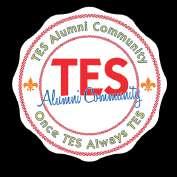

This is our first Alumni Newsletter of the academic year 2024-2025 and we have a fantastic edition for you
This edition will focus on the arts and how our alumni have benefitted from the creativity, imagination, personal expression, cultural awareness and social sensitivity that The English School has offered in our arts programmes over the years. This includes visual arts, dance, cinema, drama, music and plenty more and has served as a foundation for well-being, success and excellence in many of our alumni's personal, academic and professional lives
As always, there will be fond memories, inspirational stories and many trips down memory lane as The English School continues to inspire past, present and future generations.
We hope you enjoy this edition and that this newsletter will continue to serve as a bond of community, belonging and friendship for us all
Many thanks,
Adam Bennett Head of School and Rector

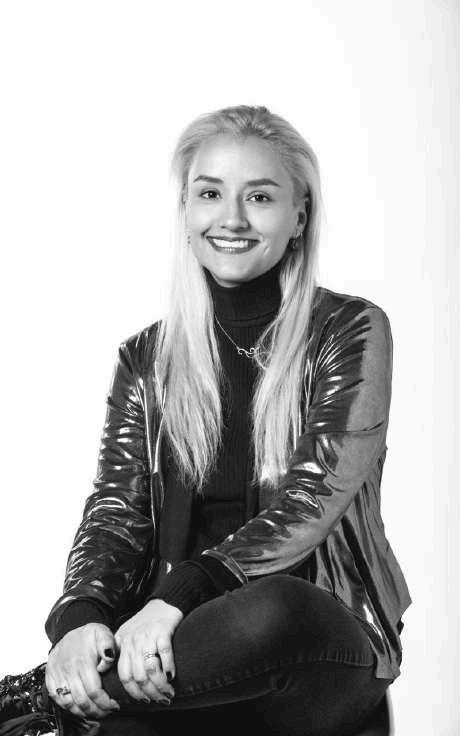
What the music industry needs are lawyers, especially focused on protecting the interests of artists and musicians “ ”
Class of 2006 - Lawyer and writer
Hi! I'm Catalina Santa Peña, a 2006 TES alumni. I am a writer and an entertainment and copyright lawyer.
How did you get to the position of CEO of one of the most important companies in the music business: Warner Chappell Music?
Well, it turns out that music, being an art, is protected by copyright and intellectual property. An issue that is regulated by law and that, in reality, economically and commercially, depends entirely on the legal part to generate an economy and a market.
When I graduated from school, I entered the Universidad de los Andes to study Law and Literature (double programme) and, during my studies, I was lucky enough to meet my husband, William Tappan, who was already a musician and composer with an important career, who had done music for television, had signed with record labels, etc. He showed me that what the music industry needs are lawyers, especially focused on protecting the interests of artists and musicians That's why, I founded my law firm: The Artist's Attorney.
I have worked in many sectors or angles of the music industry: Sony Music, the DNDA, SAYCO, the Ministry of Culture, Warner Chappell In all these places, it is essential to know about copyright, as it is the basis on which the whole music business is built.
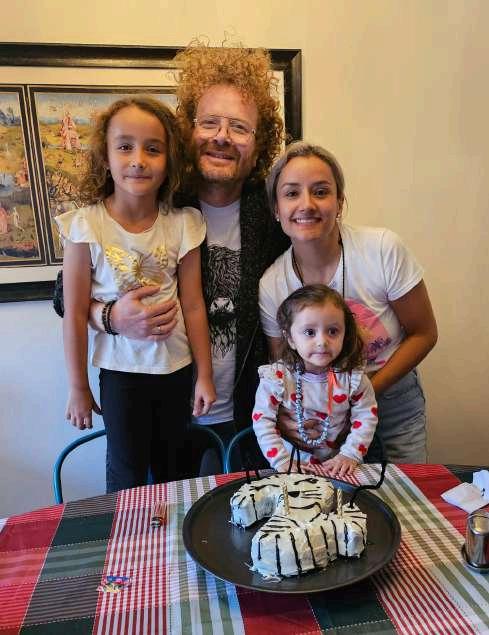
As CEO of Warner Chappell Music, what is your role, and what are the challenges you face now that you didn't face before in other positions?
Warner Chappell is one of the nicest places I've ever worked. The organisational culture is author-focused, where the focus is on developing their careers in music composition
What I like most is the direct contact with the creators of the music I love so much; supporting them in their paths and processes is wonderful The most challenging part has been the administrative part, as I had not had the need to do annual corporate budgets and forecasts, fiscal year-end closings, etc. However, in March, I took a wonderful course at Harvard's Finance for Leaders, which helped me profoundly to create a financial intuition and navigate more confidently through financial statements. I love learning things and the challenges are part of what makes it interesting to take on new roles
In your experience, what are the aspects that emerging artists don't take into account when they decide to be part of the music industry?

There are several, which is why I wrote my first book ‘’Industria musical para artistas, Music Business para todos‘’ (Music Industry for Artists, Music Business for All) (2020) On the one hand, it explains what generates money in the music industry, how it is generated, who should pay for it and how to collect it, as this fundamental topic is only now being introduced in the academic music curriculum in the education of musicians in Colombia There is very little literature on the subject. That is why parents, very honestly, ask “But, what are you going to make a living out of? when their child says he or she wants to be an artist of any kind The key is to know that, like all industries, (textile, construction, agriculture, finance, etc.) there are major players who regulate the market, assets that generate the value, ways and rules to commercialise those assets and also ways in which those royalties can be collected and monetised
The truth is that Colombia is one of the biggest exporters of music in the world It's one of the main and most growing incomes for the country, which does not depend on sources that exploit our ecological wealth, but on the contrary, our cultural wealth Finally, I would add that, of course, if you think about music, you think that the way to be in it is to be an artist, but it turns out that we need financiers, administrators, lawyers, managers, designers, photographers, and so on.
What I like most is the direct contact with the creators of the music I love so much “
“
When I was visiting cities and towns in Colombia, talking about copyright and music business, it was a topic that was not talked about
”
Do you think that copyright is given proper importance in Colombia or is there still a lot of ignorance and/or disinterest in the matter?
I think the interest is there, but until now, it has ceased to be a lawyer's issue and has begun to be given the required importance Ten years ago, when I was visiting cities and towns in Colombia, talking about copyright and music business, it was a topic that was not talked about Of course, there were record labels, publishers such as Sayco and Acinpro, but musicians didn't really know what their role was, how to negotiate and interact with these agents and how to profit from them as well. That's why our great composers and artists of yesteryear had so many difficulties in their careers
As the founder of the entertainment law firm ‘The Artist's Attorney’, what has been a challenging case, but one that ultimately yielded great rewards and/or lessons?
Probably, when we negotiated Karol G’s endorsement contract with Smirnoff global. Besides being a very important contract, it took about seven months of negotiation and countless hours and revisions. I learned a lot and it has been perhaps the biggest deal I have ever had the opportunity to handle

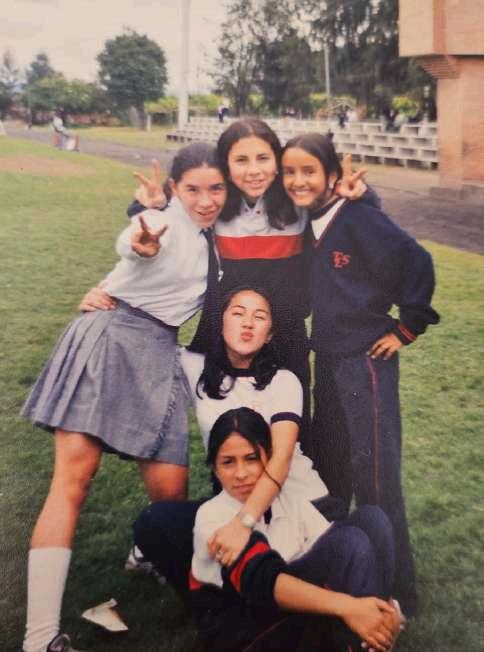


Very difficult to choose! From the band competitions, the bonfire and the trip to Amazonas to camping in Primary and the philosophy meetings To have been able to be a hyper artistic and particular person, but at the same time, to have been allowed to be listened with seriousness through the Student Council in the Board of Directors To be an activist pushing for female students being able to wear trousers and not just skirts, to have a radio station. Well, so many things that seemed so urgent to us
One returns to The English School to give one ' s children that experience of community that is so pluralistic, respectful of the individual and which ultimately makes us citizens of the world, capable and convinced that we can change the world to make it more just, beautiful and inclusive.
Click here to meet my wonderful artistic family!
What do you consider to be the foundations that the school gave you in your education to help you reach this point in your professional life?
The first thing I must say is my English proficiency To be able to present a financial budget in English for the first time, worrying only about the financial and not the English, is a luxury that I know not everyone can afford
Then, last but not least, to have critical thinking, to be a person who is aware of the world, of others, of the responsibility we have by being agents who intervene positively in the world. Looking at my brothers and sisters of my generation, I see in each and every one of them people who, from their place of interest and their own stories, are people who, above all, have human clarity and are excellent at what they do Even today, from the different parts of the world where they are, we try to have a community and continue to grow in our own stories
Our school is a family for life.
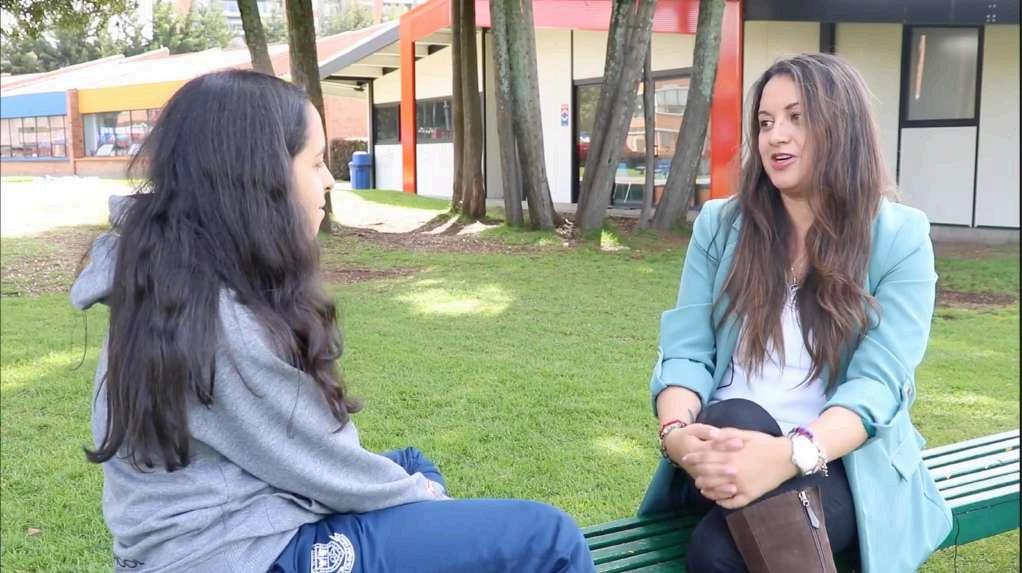
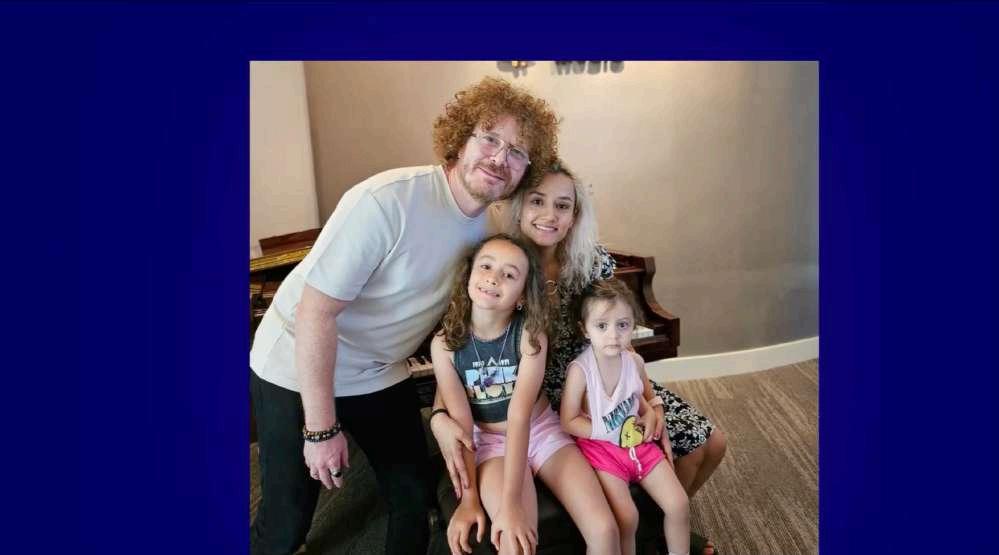
By Daniella De Luca


AAs a kid, I’ve always felt somehow alienated from the rest of the world. This didn’t mean that I didn’t enjoy the company of others or playing with other kids but, inside my heart, the feeling of being “different” lingered.
When I entered The English School in 1997, I was 5 years old and I remember this whole new world ahead of me. By that time, I didn’t know that I was called to be an artist, and there were some power point moments along my life during school that were essential to help me embrace the path I was called to follow.
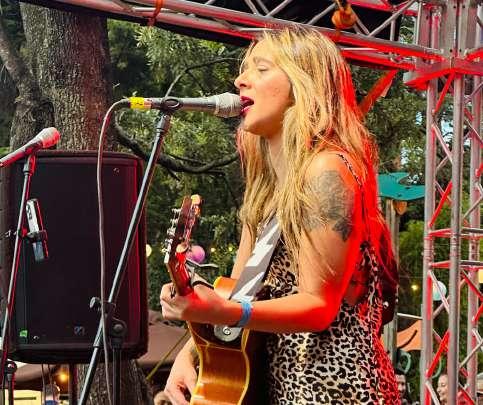
By that time, I didn’t know that I was called to be an artist “
”
The first and one of the most important power point moments that happened during my school years was in Pre-Kinder when my Music teacher, Ana María (may she rest in peace), was selecting solo singers for the Christmas concert Most of the kids in my classroom were selected to be part of the choir. When my turn to sing came, she told me, almost immediately, that I got the solo part with another girl For me, even 25 years later, that instant still feels as fresh as yesterday because, without knowing, she saw in me the quality that would be the base of my career as an independent artist, a rock-pop singer and a musician.
I’m deeply grateful to her for seeing in me the light that would guide me years later.


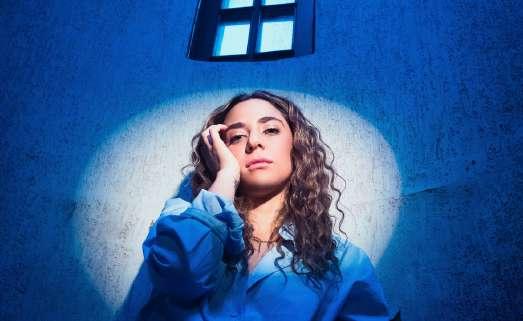
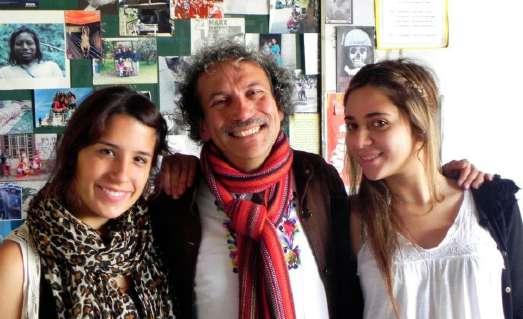
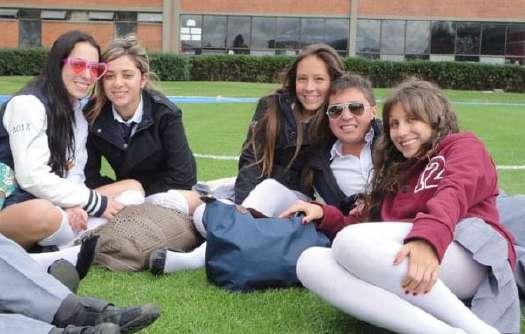
Years passed by, and when I got to High School, those years where pretty tough for me, I won’t lie, because I was not a straight A student. Additionally, my rebel spirit led me to serious discipline troubles.
Nevertheless, the arts, such as music and theatre, were safe havens for me, where my soul felt more in alignment with who I was at my core. This reminds me of a particular power point moment with one of my first theatre teachers called Donald Maciver (may he rest in power) In his Drama class, while exploring ourselves through games, he would constantly say to me: DANIELLA, BE BRAVE! I didn’t realise the power this simple phrase would hold for me because, being an artist, requires so much bravery as it is such an uncertain path. Unlike other careers, you depend, mainly, on your creativity and you have to be ready to face many uncomfortable feelings, such as rejection, instability, frustration but you got to be brave enough to keep on going and creating no matter what and to pursue that dream that is bigger than yourself.
I know I could keep on going bringing more power point moments from my school years memories, but I guess I picked these two to share because they are deeply rooted in my artistic heart. I wouldn't know if I had had discovered what I was born to do and the fierceness that lives within me to have the courage to follow my dreams if these moments hadn't occurred

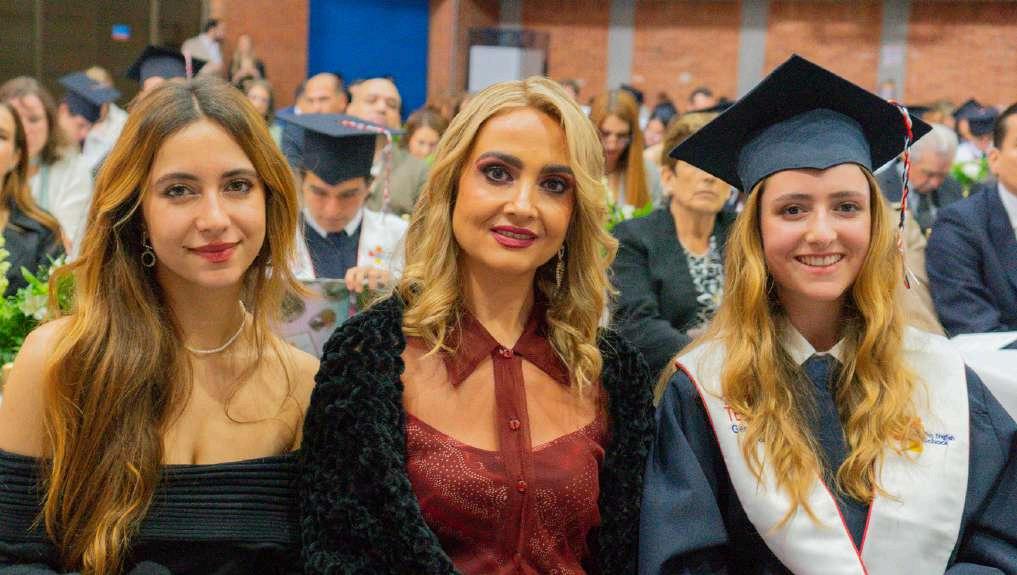
1
Rebecca Abi Antoun
Class of 2022 - Singer and songwriter
Yvana Abi Antoun
Class of 2024 - Design student
Which area of the arts did you specialise in?
Rebecca: I specialised in Music, specifically singing and songwriting
Yvana: I specialised in visual arts.
2
Why is art important to you?
Rebecca: Art has always played a huge role in my life because it has allowed me to express myself and has helped me to build my selfidentity as well as my confidence over the years. Specifically through music, I’ve had the chance to connect with others in very unique ways and showcase my feelings, passion and talents through songs that inspire me As someone who feels deeply connected with any form of art, I feel that developing my artistic side definitely helped me to explore my purpose and have a clear vision of my goals for the future
Yvana: Art is important for me because it has allowed me to effectively express and communicate different ideas while also undergoing activities I enjoy, such as drawing, painting, sculpting and taking photographs. This is also important since it has allowed me to learn new techniques, concepts and ideas that have helped me find my style. For example, to create my first painting, I had to first investigate the topic I wanted to portray and the best techniques to use with the chosen materials This led me to finding my style in oil paintings and realistic portraits.
“(Art) has allowed me to express myself and has helped me to build my self- identity as well as my confidence over the years
3
What were some of the proudest moments in arts for you at TES?
Rebecca: I’ve always been very grateful for all the spaces and events that were provided for me at TES because they allowed me to share my talent with the community and be known for something that I’m truly passionate for. Some of my proudest moments have to be singing the national anthem and the anthem of the United Kingdom at different ceremonies and events, having the chance to organise and plan a music festival for the community, and performing at the graduation ceremony, school birthdays, among other events.
Yvana: One of my proudest moments of arts for me at TES was the visual arts exhibition in Grade 11 for the IB exams since I was able to explore one of the topics I’m mostly invested in, which is portraits and identity. I was also able to explore different art techniques that made this experience more fun and interesting, such as pencil, acrylic, oil paint, colors, collage, virtual illustration, charcoal and more. Therefore, being able to present my work to my family, teachers, friends and other people at school made me feel proud as I became aware that my effort had been worth it and that there were people who felt interested in getting to know my work.
“ ” I like to paint portraits of my sister, which has created a strong relationship between us since she has become a model to me and to my artworks
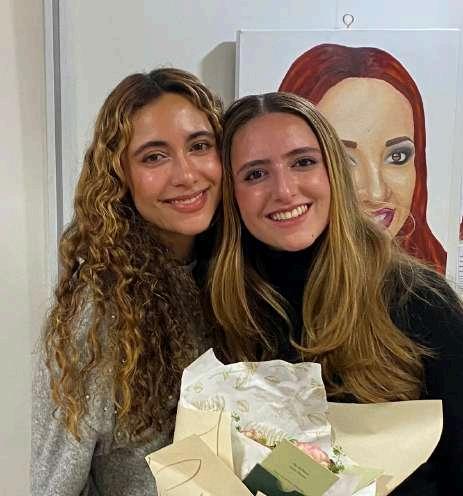

4
How have you/will you use arts in your life after TES?
Rebecca: After TES, I started working on my career as a music student at Berklee majoring in Voice Performance I’m certain that I will continue using arts, specifically music, after graduating because my goal in life is to work in the music industry as a singer, songwriter and producer I would love to have the chance to travel the world and perform my own compositions to a global audience, as well as to make a living out of creating art. I definitely view myself as a performer in the future and hopefully have the chance to share my passion with the world, just as I was able to do when I was a student at TES
Yvana: After TES, I have used art as a fun way to spend my free time while carrying out my favorite techniques, including drawing, which has allowed me to feel calm and happy. In the future, I will use arts as a fundamental component of my career (Design) since it focuses on creativity and visual communication skills, which are aspects I was able to explore in the Arts programme at TES. I was been able to learn how to use various materials in order to express meaningful ideas to an audience
5What influence has art had on your relationship with your sister?
Rebecca: Because my sister and I are both deeply connected to art in our own unique ways, I feel that it has definitely helped us to understand what are our goals in life and aspirations for the future on a deeper level We have felt misunderstood by a lot of people throughout our lives because of the stereotype that you can’t make a living out of music or art However, as we understand the importance of these career choices and we have seen how much work we have put in to keep improving our skills, we have become a huge source of support for one another throughout the years.
Yvana: It has become a way to express my view of her. For example, one of the artworks I made in relation to my sister was only based on musical notes, therefore, I was able to portray the perspective I have of my sister as a singer. Likewise, in many of my artworks, I like to paint portraits of my sister, which has created a strong relationship between us since she has become a model to me and to my artworks.
About Yvana:

About Rebecca:

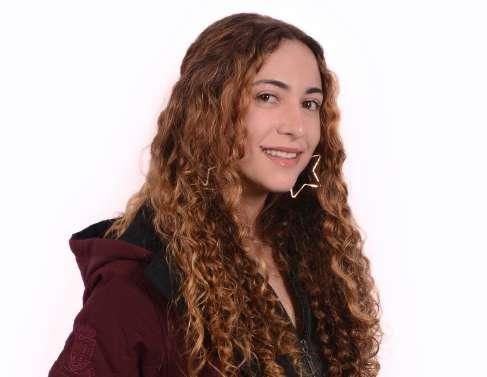
From what age and how did your interest in music begin?
My interest in music started from a very young age as my family has always told me that I learnt to speak and sing at the same time I believe one of the main influences in my house was my mom because she would constantly involve different genres of music (classical, middle eastern, Latin) in my day-to-day activities and even to go to sleep. I was surrounded by a very musical and artistic environment everyday in my house, which is what shaped me into who I am today.
What do you consider to be your main sources of inspiration for the pieces you have made?
I consider that one of my main sources of inspiration for the pieces I have made is my mom since she’s an artist and she makes various oil paintings, which, on some occasions, are also portraits. This has inspired me to learn complex art techniques, in this case oil painting, to achieve a similar work and improve my skills
Class of 1992
Furniture Designer

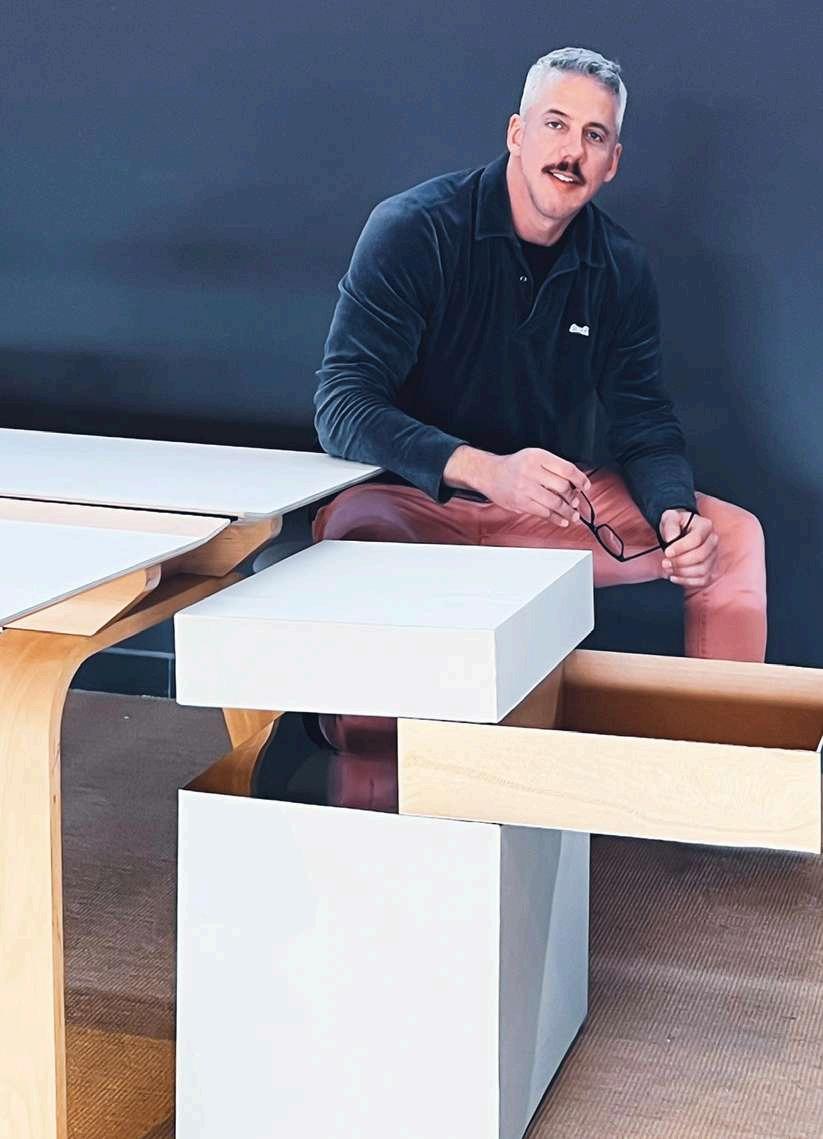
Tell us about yourself, where do you live, what do you do, field of work, what have you studied, etc.
SSince graduating in 1992, I pursued Architecture at Universidad de los Andes and later at the Catholic University of America in Washington, DC. I spent years designing residential and hospitality projects for various studios, and eventually, I started my own studio. After 13 years in DC, I sought new horizons, moving to Hawaii to focus on my photography art. My travels took me across the world and the USA before I settled in Miami to continue my design work Post-pandemic, I moved to Barcelona, where I now live, to pursue a Master’s in Furniture Design, creating both art and design.

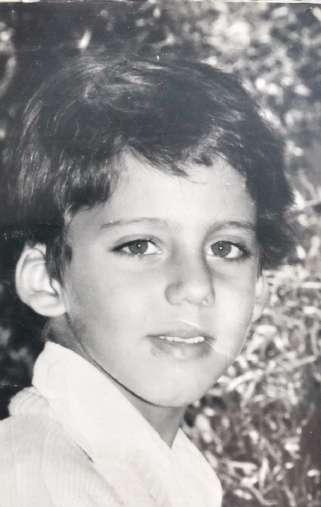
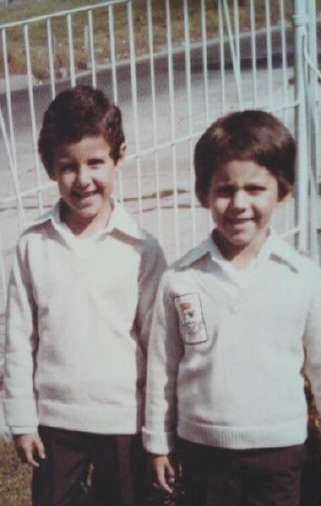
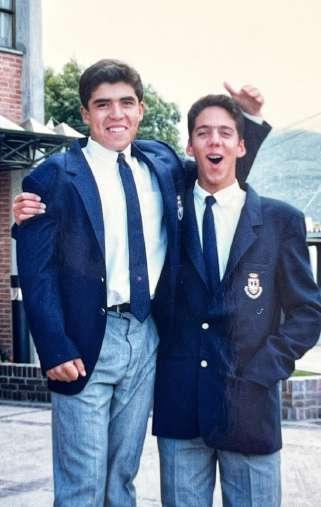
Tell us about your life at The English School
I joined The English School in Pre-kindergarten, back when it was nestled in a remote, fog-covered location. As kids, we played with light bugs, frogs, and dogs before starting our classes Over the years, the school evolved, each year offering a better campus. These memories are vivid, as the school became the backdrop for all our adventures. In Secondary School, I belonged to the Aztec House with yellow as our color. I loved volleyball and high jump
The introduction of the IB programme was a significant opportunity, expanding our horizons beyond what Colombia could offer We had an inspiring mix of foreign and local teachers Ms. Umana, Ms. Carmina, Ms. Irrurita, Mr Torres, Mr Chaskel, and Professor Negret who all left a lasting impact on me. I do wish I had paid more attention in Philosophy class, as it holds daily relevance even now.
What do you remember the most of TES?
What I remember most about TES is the sense of growth and evolution both in the school and in myself. The early foggy mornings, the old classrooms with their green chalkboards, art and music classes that stirred my creativity, the library and the Encyclopedia Britannica, the excitement of Chemistry lab experiments, and Geography and History classes that fueled my wanderlust. I recall my first computer class, a time before the internet, jeans days, rushing to buy food at recess, laying on the grass talking with friends, Talent Day, Valentine's Day, and of course, the pride of graduation day. These memories, filled with the highs and lows of school life, are deeply etched in my mind
The introduction of the IB programme was a significant opportunity, expanding our horizons “ ”
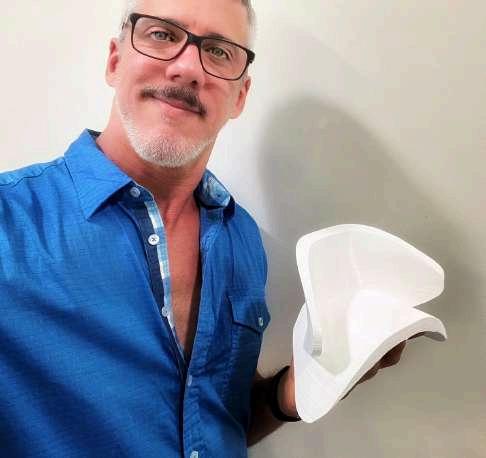
How do you believe TES contributed to your achievements on a personal and professional level?
TES provided me with an exceptional education, which became evident when I attended university in Washington, DC. Some of my school courses were recognised as university-level, and I often felt more prepared than my American classmates. I owe much to TES and the IB programme for this The English skills I honed also made my transition to the US much smoother I’m profoundly grateful for the education I received and often thank my parents for their sacrifices to provide it.
My advice to future TES graduates is to cherish the education and opportunities you receive here “ ”

What advice can you give to future TES graduates?
The friendships I formed at TES are among my life’s greatest treasures, enduring for over 40 years These bonds have provided me with understanding, respect, and companionship, no matter where life has taken us My advice to future TES graduates is to cherish the education and opportunities you receive here. Pay attention to every subject it might shape your future in unexpected ways. And most importantly, value the friendships you make they are likely to become lifelong bonds that will enrich your life long after you leave school
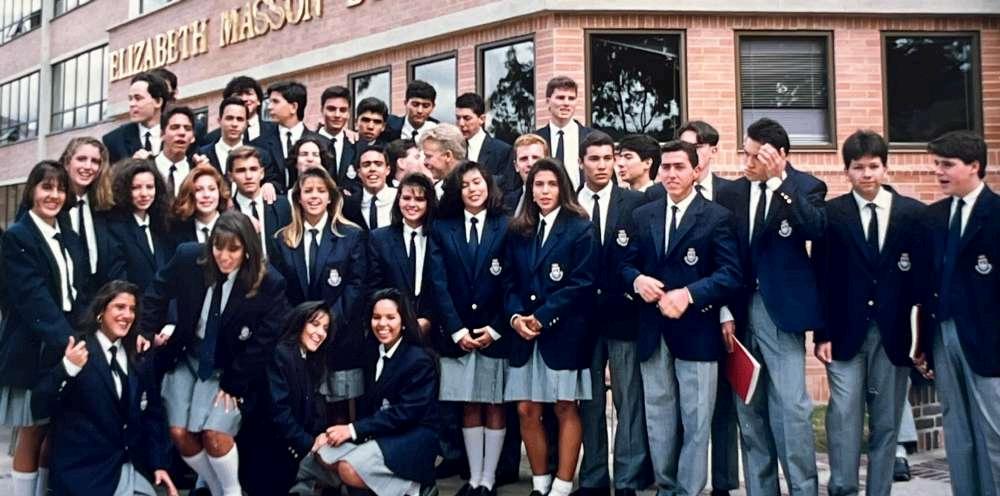

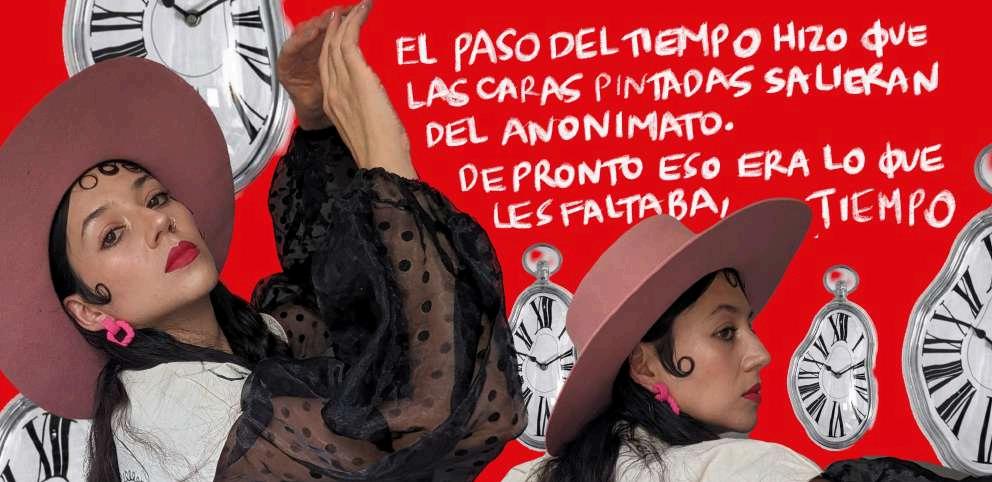
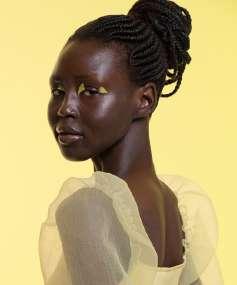
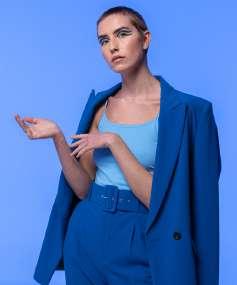

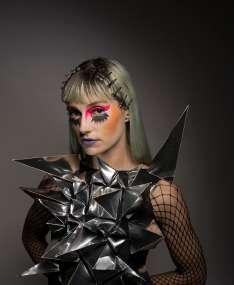
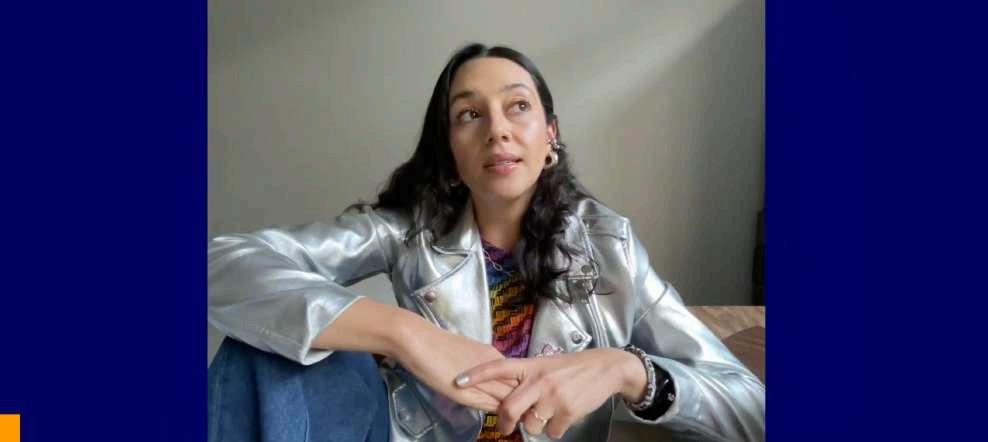

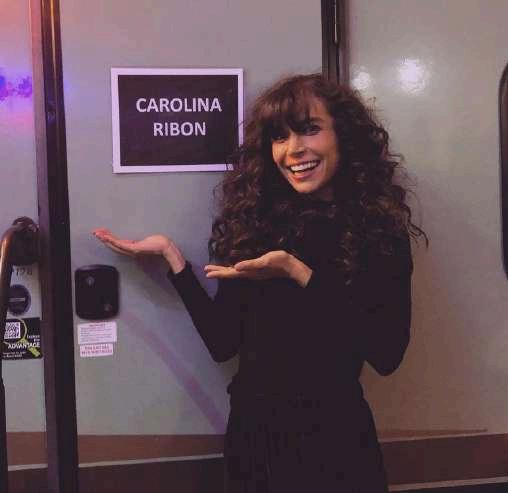
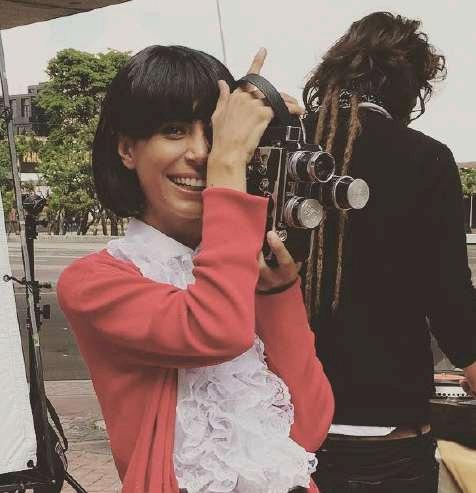
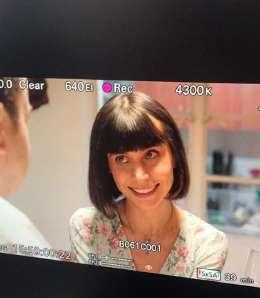
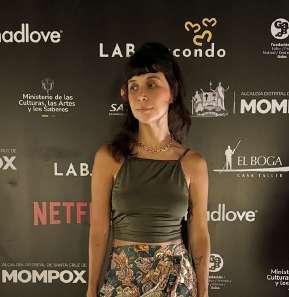
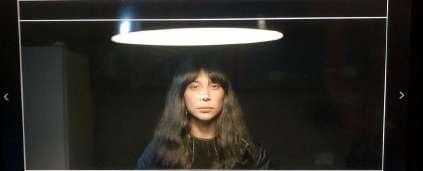


Class of 2006 - Chef
By Andrea C. Suárez Munevar


Sara Parada graduated from TES in 2006 I still remember her when her name was called to receive the IB Diploma at the Community Hall: she was wearing her chef uniform from La Salle College It was great to see her fulfilling her dreams. She challenged whoever didn’t see gastronomy as a formal professional path
Later on, she travelled to study at Le Cordon Bleu, where she strengthened her knowledge and learnt from other cultures and traditions. Nowadays, she is studying food engineering.
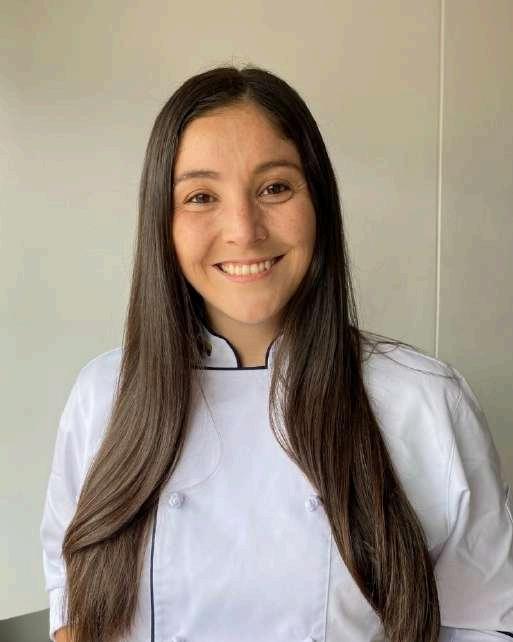
Before the pandemic, in 2018, Sara created her own business called “Freezecake”, an idea that came from the desire of a delicious but rare dessert, full of colours and covered with chocolate and other tasty ingredients She has an Instagram account for people to place orders and to learn about this amazing business (@freezecake)
After an interview with her, it is clear that inspiration sometimes comes from home, from family or from the memories that we create as humans every day. Let’s enjoy some of the questions and what she shared with all of us.
What led you to choose a career in gastronomy and baking?
“No one in my family ever learnt to cook, so it was never an “obvious” thing for me, but we always liked to try different restaurants. I have always loved food and never saw myself pursuing a traditional career It all really started because I really enjoyed baking at home following recipes from books and magazines, and, when it was time to decide, it seemed like an option that fit my personality very well Now, I see food as something beautiful, something that unites and nourishes us, something that, for me, is almost sacred, so I always try to honor and respect it”.
“ ”
I see food as something beautiful, something that unites and nourishes us
What inspires you to create?
“Many things. The main one is always people. I love to get to know the person I'm going to prepare something for. There's nothing better than eating what you like. When I can't (because I have different clients every week), I try to make things that 1) are in season; and 2) are a little different from what is trending. At some point, I was trying to make things that looked very pretty and trendy but didn't taste very good, and I was very unhappy doing it. Now, I find that I love making things that are less visually attractive, but tastier I also find that when I make old fashioned traditional recipes, I kind of come up with a thousand ideas of things to do with them, kind of like ‘recycling’ them to renew them and I've done much better with that”.
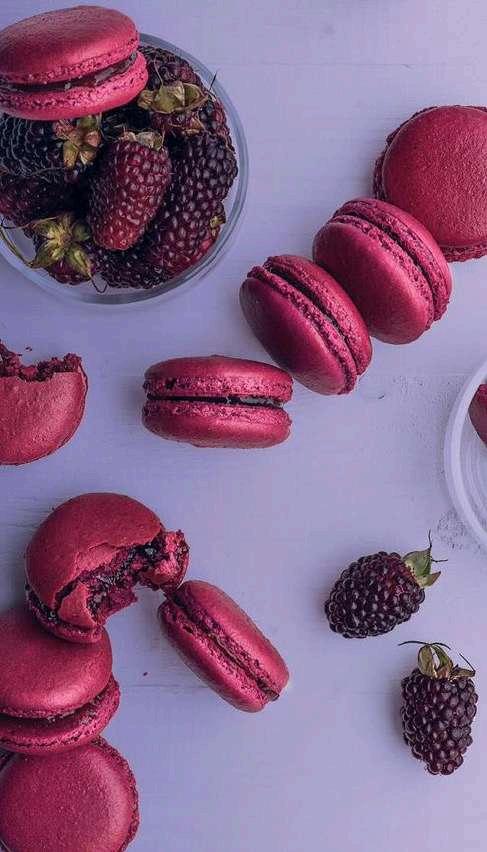

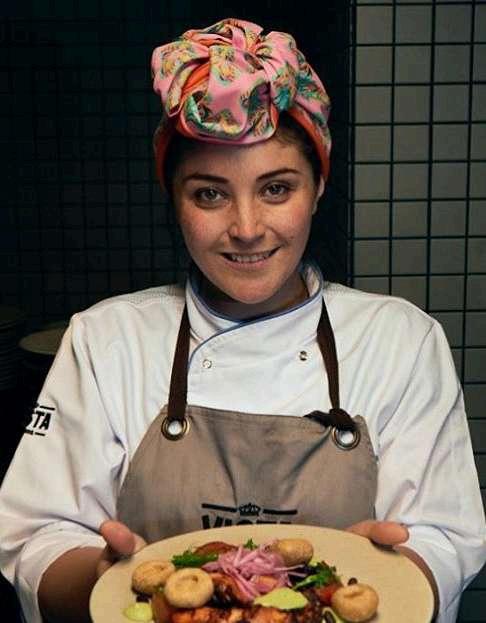
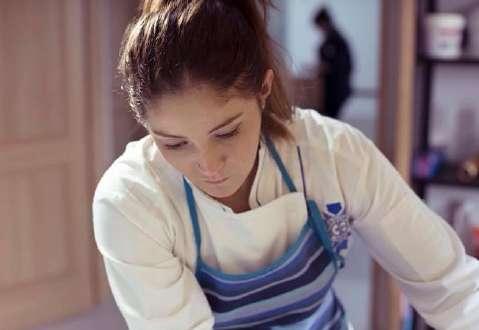
Tell us about your experience.
“It has been happy, demanding, difficult but very satisfying. For me, it was very difficult to make a career in a profession that was not so well known in Colombia and that, when I graduated from TES, was not even an option as a professinla career That’s why, I had to leave the country for a while and study abroad
TES gave me the knowledge to be able to communicate in other languages and see the world as an opportunity to learn from other cultural backgrounds. I took advantage of that freedom to work in different establishments and gain experience, and I learnt that I chose a profession that was physically and mentally demanding”
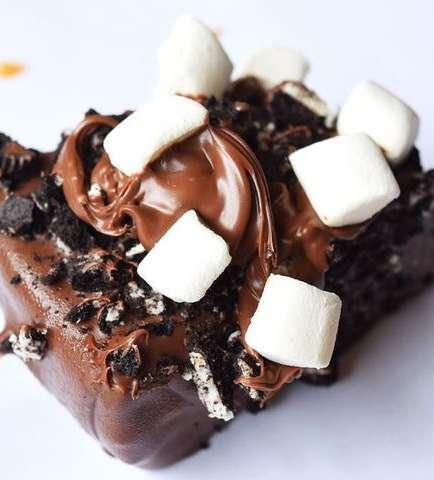
...we all agree upon how easy university is because of the way TES prepares the students “ ”

Tell us about TES and how the school had an impact in your life.
“When I graduated from TES, I realised how well-prepared I was in terms of discipline, and I learnt to be grateful with what the school taught me academically. I was able to speak with some alumni and we all agree upon how easy university was because of the way TES prepares the students. The rhythm and discipline at TES are crucial when going to university All the hard work, the perseverance and the will to do things right, are part of what TES instills in their students”.
In addition, “TES also taught me sense of responsibility and the importance of respect towards teachers I had very professional teachers who were exceptionally good in different subjects. Another thing that I value from TES is the chance that we had of being able to choose IB subjects that help us follow and develop what we like. In my case, I chose Art and it was crucial in my career ” .
Sara Parada has demonstrated that gastronomy can be seen as a form of art, where the mix of colours, creativity and passion, has allowed her to explore and unleash her ideas and goals.



